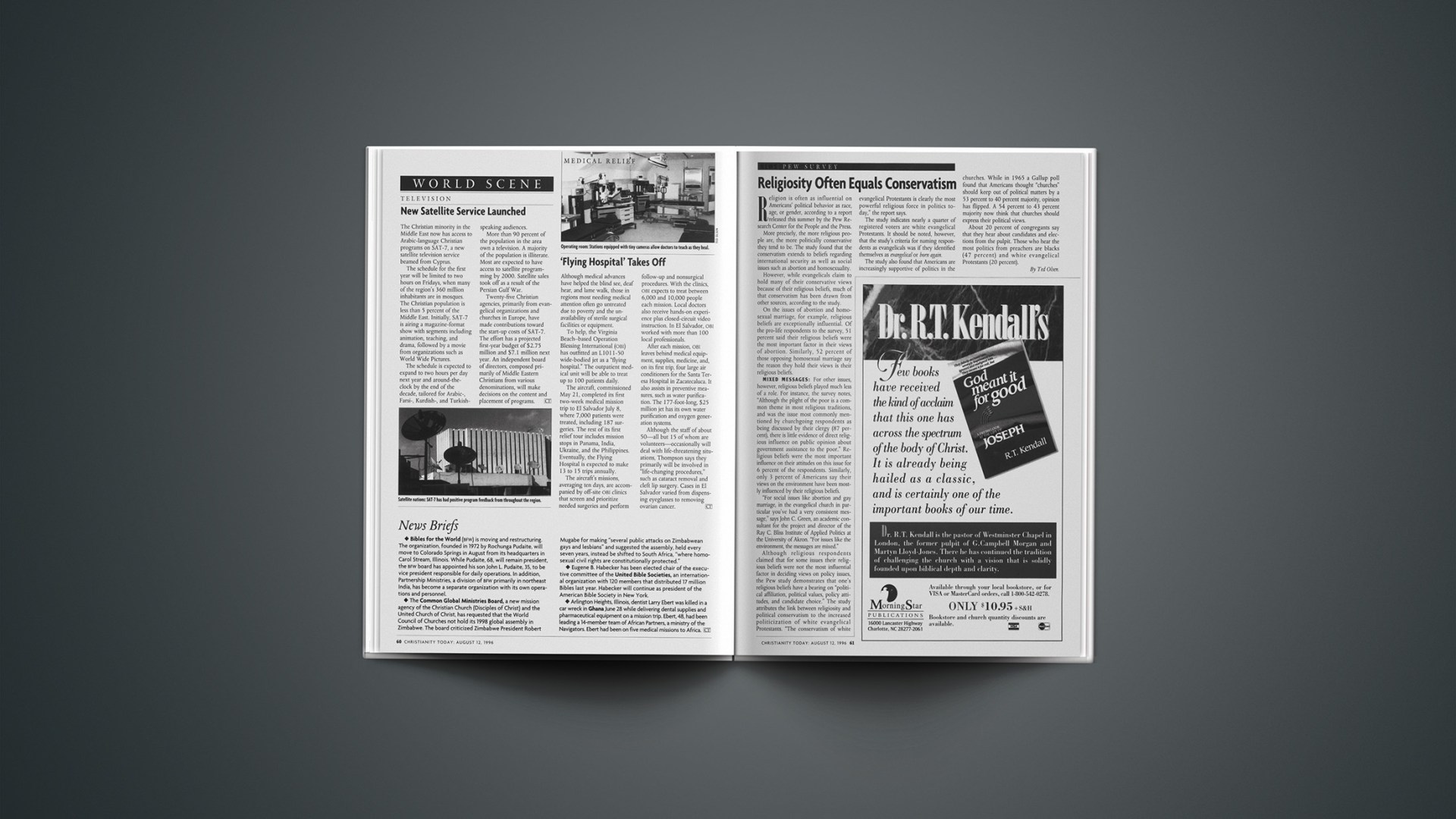More precisely, the more religious people are, the more politically conservative they tend to be. The study found that the conservatism extends to beliefs regarding international security as well as social issues such as abortion and homosexuality.
However, while evangelicals claim to hold many of their conservative views because of their religious beliefs, much of that conservatism has been drawn from other sources, according to the study.
On the issues of abortion and homosexual marriage, for example, religious beliefs are exceptionally influential. Of the pro-life respondents to the survey, 51 percent said their religious beliefs were the most important factor in their views of abortion. Similarly, 52 percent of those opposing homosexual marriage say the reason they hold their views is their religious beliefs.
MIXED MESSAGES: For other issues, however, religious beliefs played much less of a role. For instance, the survey notes, “Although the plight of the poor is a common theme in most religious traditions, and was the issue most commonly mentioned by churchgoing respondents as being discussed by their clergy (87 percent), there is little evidence of direct religious influence on public opinion about government assistance to the poor.” Religious beliefs were the most important influence on their attitudes on this issue for 6 percent of the respondents. Similarly, only 3 percent of Americans say their views on the environment have been mostly influenced by their religious beliefs.
“For social issues like abortion and gay marriage, in the evangelical church in particular you’ve had a very consistent message,” says John C. Green, an academic consultant for the project and director of the Ray C. Bliss Institute of Applied Politics at the University of Akron. “For issues like the environment, the messages are mixed.”
Although religious respondents claimed that for some issues their religious beliefs were not the most influential factor in deciding views on policy issues, the Pew study demonstrates that one’s religious beliefs have a bearing on “political affiliation, political values, policy attitudes, and candidate choice.” The study attributes the link between religiosity and political conservatism to the increased politicization of white evangelical Protestants. “The conservatism of white evangelical Protestants is clearly the most powerful religious force in politics today,” the report says.
The study indicates nearly a quarter of registered voters are white evangelical Protestants. It should be noted, however, that the study’s criteria for naming respondents as evangelicals was if they identified themselves as evangelical or born again.
The study also found that Americans are increasingly supportive of politics in the churches. While in 1965 a Gallup poll found that Americans thought “churches” should keep out of political matters by a 53 percent to 40 percent majority, opinion has flipped. A 54 percent to 43 percent majority now think that churches should express their political views.
About 20 percent of congregants say that they hear about candidates and elections from the pulpit. Those who hear the most politics from preachers are blacks (47 percent) and white evangelical Protestants (20 percent).
Copyright © 1996 Christianity Today. Click for reprint information.










